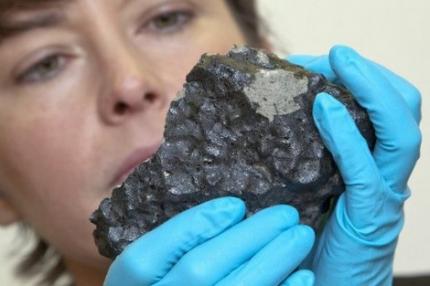yds-yökdil reading with sound -quiz

British scientists have begun studying a rare meteorite to reveal more about the history of Mars. The rock, named ‘Tissint’ after the Moroccan area where it
crashed in July 2011, was recovered from the ground just five months later – not enough time to be too contaminated. “The Tissint sample is probably the most important meteorite to have landed on the Earth in the last 100 years,” says Dr. Caroline Smith, curator of meteorites at the Natural History Museum in London. An analysis of the rock revealed its Martian origin. It would have been removed from Mars when an asteroid struck the planet, staying in space as debris before being attracted by the Earth’s gravity. Of the 41,000 officially recognized meteorites, 61 come from Mars and the Tissint rock is only the fifth that was witnessed falling. Dr. Tony Irving of Washington University, who performed some initial analysis on the sample, does not think there is much chance of finding fossilized life within it. But the British team could reveal whether minerals have been affected by water or contain elements such as carbon. Smith says “We’re not looking for microbes, but we’re looking for the chemical and environmental signatures to indicate whether Mars, at some point in its past, may have provided a suitable environment for life to exist.”

